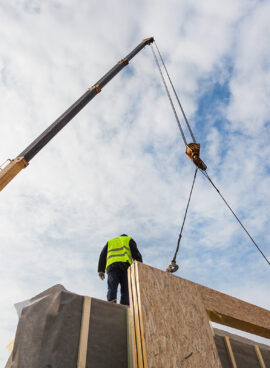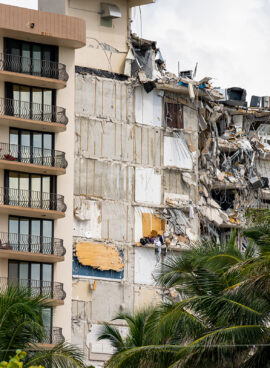Condemnation Rights of Private Companies
What does a single trolley car lumbering down Main Street in 1907 have in common with a high speed rail travelling at 205 mph between Dallas and Houston 115 years later? When it comes to eminent domain rights in Texas, quite a bit.
James Miles owns a 600 acre tract of land in Leon County. The property has been in his family for nearly 100 years. In 2015, Texas Central Railroad & Infrastructure, Inc. and Integrated Texas Logistics, Inc. (collectively, “Texas Central”) requested permission to survey Miles’ property for purposes of obtaining a 100-foot right of way for a high-speed trai
Cross-Payment Clauses in Construction Contracts
Many subcontract agreements allow a general contractor to withhold payment on one project due to problems, like delays or non-conforming work, on another project. These provisions need only be a sentence long and can be hidden almost anywhere in the agreement. However, regardless of the length or complexity of the cross-payment clause itself, the provision can have wide-reaching impacts to many different projects.
From the subcontractor’s perspective, a cross-payment provision starves one or multiple projects for cash to complete the work. From the general contractor’s perspective, prote
Pay-if-Paid Clauses
Recently, the Virginia governor signed into law “SB550,” which explicitly makes “pay-if-paid” clauses unenforceable by statute, joining six other states with similar laws. Texas also has a statute governing pay-if-paid or contingent payment clauses, though does not outrightly void them. What are contingent payment clauses and what are the statutory restrictions in Texas on their enforceability? This article provides a primer.
What are contingent payment clauses?
Contingent payment clauses are just that, clauses that provide that when X happens, Y occurs (i.e., X is a condition prec
$1 Billion Surfside Settlement
On par with rarity of the collapse of a high-rise building in the US, an unprecedented $1 billion settlement agreement was recently presented to the court presiding over the property, personal injury and wrongful death claims relating to the Champlain Tower South collapse. Who contributed and the amounts they agreed to pay may surprise you.
A. The Settling Parties
The biggest contributors towards settlement are not who you might think they are or should be. As a 40+ year old building, the statute of repose had long ago cut off liability for the contractors and design professionals invo
Dallas Court of Appeals Enforces Waiver of Subrogation
Earlier this year, the Dallas Court Appeals enforced a waiver of subrogation clause in a construction contract relating to the Winspear Opera House, holding that a commercial general liability (CGL) insurance policy was “property insurance” contemplated by the contract. On behalf of our firm, I argued successfully that the waiver of subrogation barred the insurer’s claim.
In Arch Ins. Co. v. Suprema, Inc., the roofing subcontractor, Anchor Roofing Systems (Anchor), and the supplier of roofing membrane, Soprema, argued that the Arch insurance Company’s (Arch) lawsuit to recover $1.6 m







